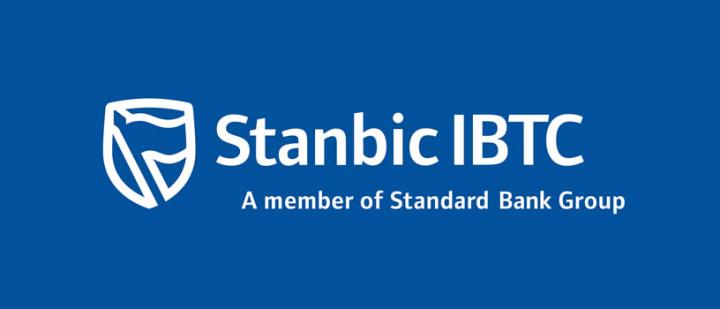Stanbic IBTC Holdings Plc has unveiled a comprehensive economic roadmap for 2026, aimed at equipping businesses, investors, and policymakers with strategic insights to navigate Nigeria’s evolving economic landscape. The initiative underscores the financial institution’s commitment to supporting national growth through informed decision-making, economic research, and stakeholder engagement.
At an exclusive economic forum held in Lagos, the bank’s top executives and analysts presented detailed projections covering inflation trends, exchange rate movements, fiscal policies, and sectoral opportunities expected to shape the Nigerian economy over the next year. The session brought together leading figures from the public and private sectors, including entrepreneurs, corporate executives, policymakers, and development partners.

Speaking during the event, Dr. Demola Sogunle, Chief Executive of Stanbic IBTC Holdings, stated that the roadmap represents part of the group’s long-term strategy to empower stakeholders with actionable intelligence for sustainable growth. “Our 2026 outlook is designed to help businesses anticipate changes, plan effectively, and make strategic investments,” he said. “Nigeria is entering a critical phase of economic transformation, and collaboration across sectors is key to achieving progress.”
Dr. Sogunle emphasised that while macroeconomic challenges persist, Nigeria’s reform momentum offers hope for medium-term stability. He noted that government efforts in fiscal consolidation, infrastructure investment, and foreign exchange liberalisation are beginning to yield positive outcomes. However, he stressed the need for consistent policies to sustain the gains recorded so far and build investor confidence.
The event’s keynote presentation, titled “Nigeria 2026: Pathways to Inclusive Growth,” highlighted several emerging trends expected to drive economic performance. Analysts from Stanbic IBTC Bank’s Economic Research Unit projected that inflation could ease gradually from current highs if monetary tightening by the Central Bank of Nigeria (CBN) continues effectively. They also forecast a rebound in capital inflows, supported by improved transparency in the foreign exchange market and ongoing fiscal reforms.
The report further identified sectors such as agriculture, energy, fintech, and manufacturing as key growth drivers for 2026. According to the analysts, these sectors hold significant potential for job creation and export diversification if supported by the right policy frameworks. “The next frontier of Nigeria’s growth will be built on innovation, productivity, and inclusive policies,” the report stated.
Participants at the forum praised Stanbic IBTC for consistently providing credible economic insights that shape business strategies and government planning. Mrs. Oby Nwankwo, a business leader and one of the attendees, described the session as “an invaluable platform for dialogue between the financial industry and the real sector.” She noted that the insights shared would help business owners align their operations with market realities and position for the opportunities that lie ahead.
Stanbic IBTC Holdings, a member of the Standard Bank Group, has maintained a strong reputation as a knowledge-driven financial services provider in Nigeria. Over the years, the institution has pioneered several initiatives to foster economic literacy, including the Stanbic IBTC Economic Outlook Series and sector-specific investment webinars. The 2026 roadmap builds on this legacy, providing a holistic view of Nigeria’s economic direction amid global uncertainties.
During the presentation, Wole Adeniyi, Chief Executive of Stanbic IBTC Bank, noted that data-driven decision-making remains central to the bank’s operations and advisory services. “Our goal is to ensure that clients and partners are not just reacting to market changes but are proactively planning for them,” he said. Adeniyi also highlighted the importance of strengthening Nigeria’s non-oil sectors to reduce vulnerability to global oil price fluctuations.
On fiscal matters, Stanbic IBTC analysts called for improved revenue mobilisation through digital tax systems, reduction in wasteful spending, and the expansion of the tax base. They argued that such measures would provide the government with more fiscal space to invest in infrastructure, education, and healthcare. The report also recommended targeted incentives for small and medium enterprises (SMEs), which remain the backbone of Nigeria’s economy.
Addressing monetary stability, the roadmap advised the Central Bank to maintain a balance between tightening policies to curb inflation and ensuring sufficient liquidity to support growth. It also urged continued collaboration between the fiscal and monetary authorities to ensure policy coherence.
The forum also featured a panel discussion where experts examined the global economic environment and its implications for Nigeria. The panelists agreed that while challenges such as global supply chain disruptions and geopolitical tensions persist, Nigeria’s growing domestic market and youthful population present immense opportunities if properly harnessed.
Another major highlight of the event was the launch of Stanbic IBTC’s Economic Intelligence Portal, an online platform designed to give stakeholders access to research reports, data dashboards, and real-time updates on economic indicators. According to the bank, the portal will serve as a one-stop hub for businesses, policymakers, and academics seeking reliable economic information.
In closing, Dr. Sogunle reaffirmed Stanbic IBTC’s dedication to driving economic development through thought leadership, innovation, and partnerships. He called on both the public and private sectors to embrace collaboration and policy discipline to ensure inclusive growth. “Sustainable progress will only come when every stakeholder—government, business, and civil society—plays an active role in shaping the economic narrative,” he said.
The unveiling of the 2026 economic roadmap reaffirms Stanbic IBTC’s role as a trusted financial institution committed to Nigeria’s development. By equipping stakeholders with strategic knowledge and foresight, the bank continues to empower decision-makers across industries to navigate challenges and seize opportunities in a rapidly changing economic environment.
Support InfoStride News' Credible Journalism: Only credible journalism can guarantee a fair, accountable and transparent society, including democracy and government. It involves a lot of efforts and money. We need your support. Click here to Donate
